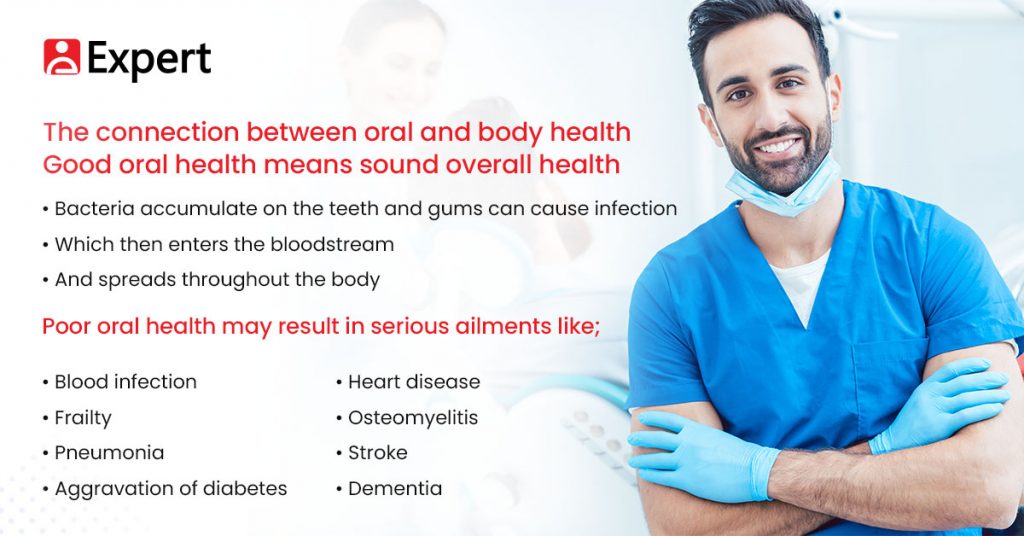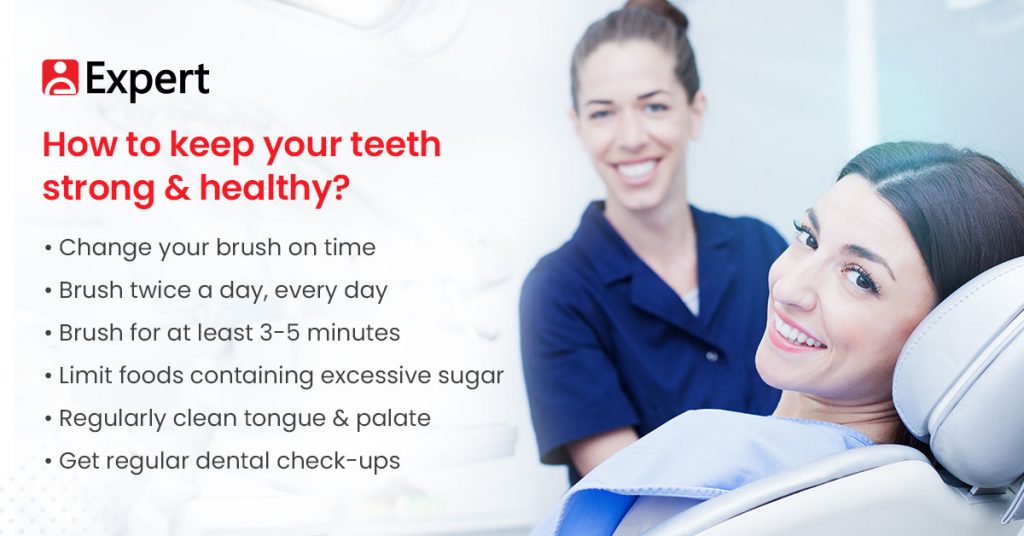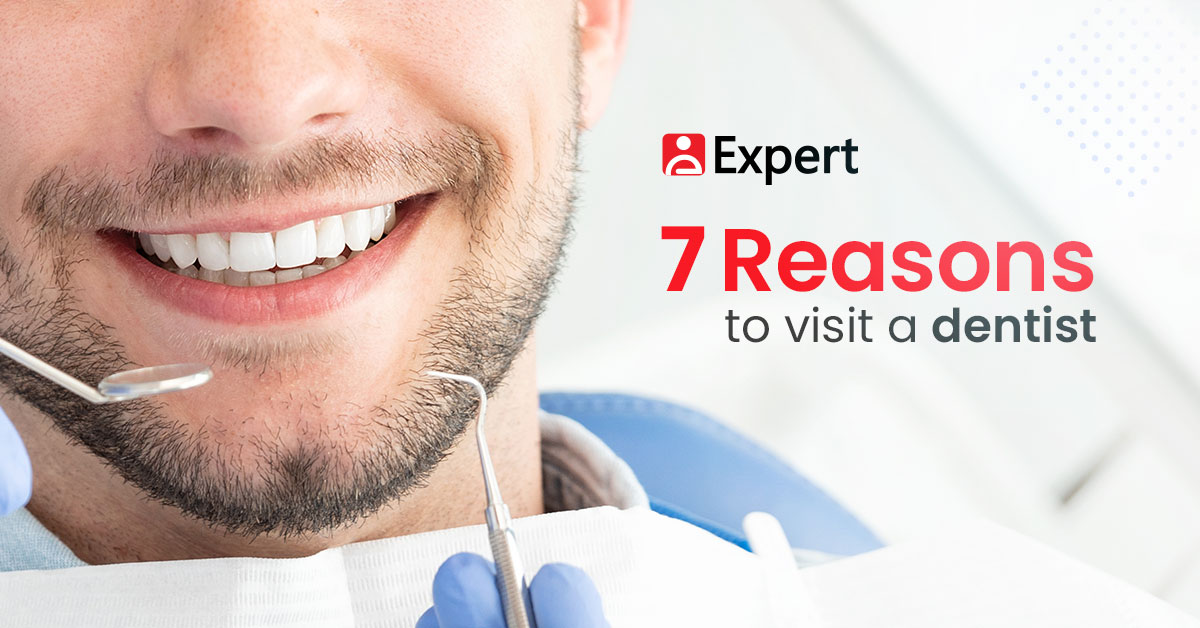Having a bright white smile is ideal for most people. You will feel more confident, look more attractive, and it will also have a positive impact on your health. As an adult, you must be proactive when it comes to dental health.
The NHS advises that those with good oral health should visit the dentist every 12 to 24 months for a check-up. More frequent visits are recommended for those with dental issues. However, the more regularly you attend, the more likely you are to avoid risks. A dentist can help remedy all problems relating to your teeth and gums, no matter what condition they are in.

Reasons or signs you need to see your dentist
Toothache
Anyone who has experienced toothache will know how truly excruciating it can be. Severe or persistent pain is a clear indication of a serious problem. If you don’t pay attention to it and leave it untreated, it can worsen with time, and the health issue can cause you serious problems. It is best to book a dental appointment if the pain is ongoing.
Toothache can be caused by several issues such as tooth decay, dental abscesses, a damaged tooth, issues with fillings or braces, and infections. It is best to take ibuprofen or paracetamol until you see the dentist if you are experiencing pain. You can also try rinsing your mouth out with salt water and eating soft foods.
Gum disease
Inflamed, swollen, or sore gums are a clear indication of gum disease. You may notice your gums bleeding when you brush them or that your breath starts to smell. This mild stage of gum disease is called gingivitis. If a dentist does not see it, it can lead to more serious issues, and your teeth may eventually fall out. Gum disease is the result of excess plaque, which can be removed by brushing your teeth frequently. Brush twice a day and attend regular dental check-ups to avoid this issue.
Mouth injury
In case of any accidental injury to your mouth, you will have to book a dentist appointment immediately, explaining the nature of the situation. You may have to go to A and E beforehand, depending on the injury. Any major trauma can result in your teeth being damaged at the root. A dentist will numb your mouth, perform the relevant procedures, and put you on the path to recovery.
White spots on your teeth
Multiple factors can cause white spots on teeth. One is Fluorosis when large quantities of fluoride are taken in while the teeth are still developing. The patches can be caused by improper nutrition or side effects from medicine. Inefficient brushing, leading to demineralisation of tooth enamel, can also play a part. As soon as you notice any spots, consult with your dentist. Getting the problem checked out in the early phases is best.
Canker sores
A canker sore is a tiny sore causing pain inside the mouth. These can be found on the tongue, inside your cheek and lip, at the base of your gums, or on the soft palate. They are not contagious and do not appear on the actual lip. Canker sores can appear in single and group forms and can reappear numerous times.
They can cause pain but usually clear on their own in a couple of weeks. Symptoms can include a sore or tingling interior of the mouth. Canker sores can also lead to fever and diarrhoea. It is best to see your dentist if you believe that any of your symptoms could indicate that you have canker sores. Avoiding chewing gum, citric fruits, and brushing teeth after meals can be useful preventative measures.

Tooth sensitivity
Some people have sensitive teeth and gums compared to others. If you use special toothpaste for sensitive teeth and are still not comfortable consuming hot, cold, or sweet food, this can be a clear indicator of a serious issue. Only a dentist will know the best way to treat the problem.
Teeth become sensitive because a layer of dentine within the tooth is no longer covered by a healthy layer of protective enamel, causing the nerve to be more exposed. Tooth sensitivity can be due to many things, such as a cracked tooth or over-brushing, and having regular check-ups is the best option to avoid it.
Grinding teeth
Teeth grinding and jaw clenching are frequently due to stress or anxiety but are also the side effects of certain medicines. The grinding often occurs during sleep, and alcohol, smoking, and over-consumption of caffeine can also play a role. It can also lead to earache and disrupted sleep, symptoms that disappear when the grinding stops. You should see a dentist if your teeth are worn or damaged due to grinding teeth. A GP may also be able to help if you think that the issue is stress-related.
The final say
There are many reasons for visiting a dentist. If you feel that anything is not quite right, are experiencing discomfort, or spot any visible changes, it is best to see a professional.
At Expert, our registered and experienced dentists will ensure that your health is in top shape in the coming months. They will check every aspect of your teeth and gums to bring you closer to that perfect smile. The waiting list is far shorter than most regular high street dentists, and the quality is of the highest possible standard. Book an appointment with your Expert dentist today.


 Home
Home








